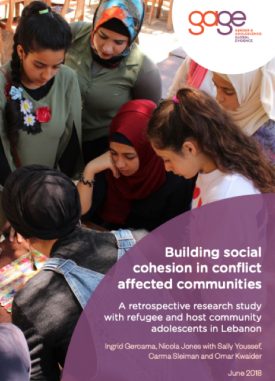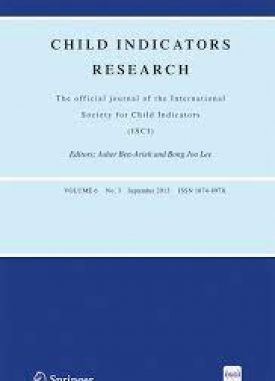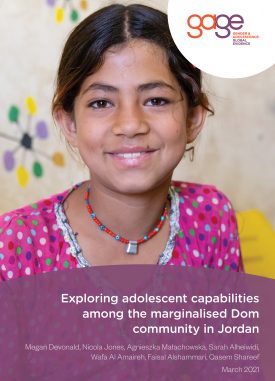In recognition of the growing mental health crisis among children and adolescents, Jordan’s Ministry of Health and Ministry of Education have recently partnered to develop and implement a school-based mental health care package that is accompanied by community-based psychological first aid for children (Japan International Cooperation Agency and Save the Children Japan, 2021). This represents a sea change in the way mental health care is conceptualised and delivered in Jordan, which has to date remained overly dependent on scarce specialists and the efforts of non-governmental organisations (NGOs) (Schubert, 2018; McNatt, 2019; World Health Organization (WHO), 2020; 2022).
This policy brief, which draws on mixed-methods data collected between 2018 and 2022 as part of the Gender and Adolescence: Global Evidence (GAGE) research programme, aims to contribute to the efficacy of Jordan’s efforts to meet the mental health needs of adolescents by strengthening the evidence base on how nationality, gender and disability shape their psychosocial well-being. It is meant to be read alongside a companion policy brief that lays out GAGE’s headline findings on the stressors facing young people – and the supports available to them to strengthen their psychological well-being.
Suggested citation
Presler-Marshall, E., Jones, N., Abu Hamad, B., Małachowska, A. and Al Amaireh, W. (2023) ‘Psychosocial well-being of adolescents in Jordan: the intersecting role of nationality, gender and disability.’ Policy brief. London: Gender and Adolescence: Global Evidence. (https://www.gage.odi.org/publication/psychosocial-well-being-of-adolescents-in-jordan-the-intersecting-role-of-nationality-gender-and-disability/)


